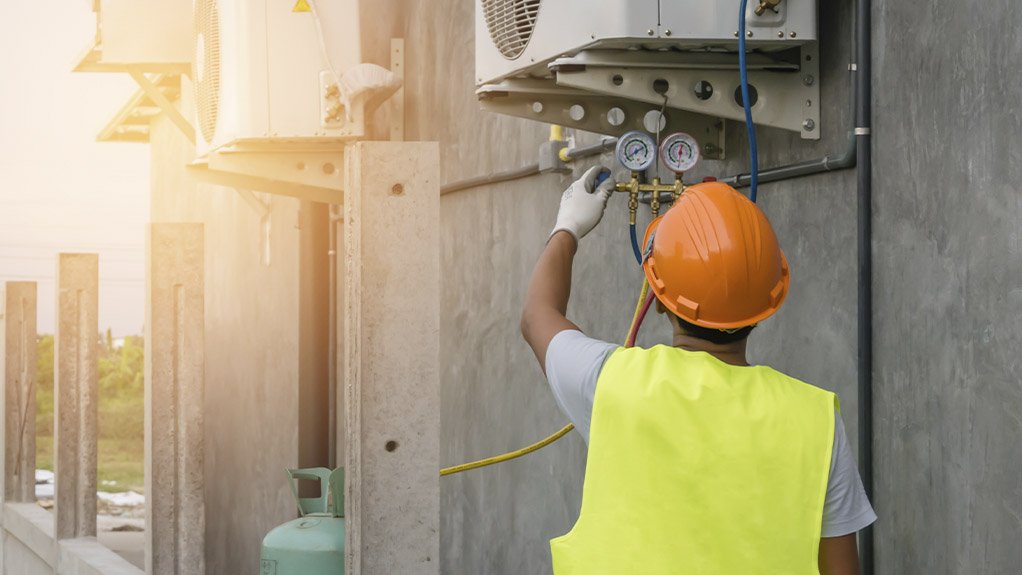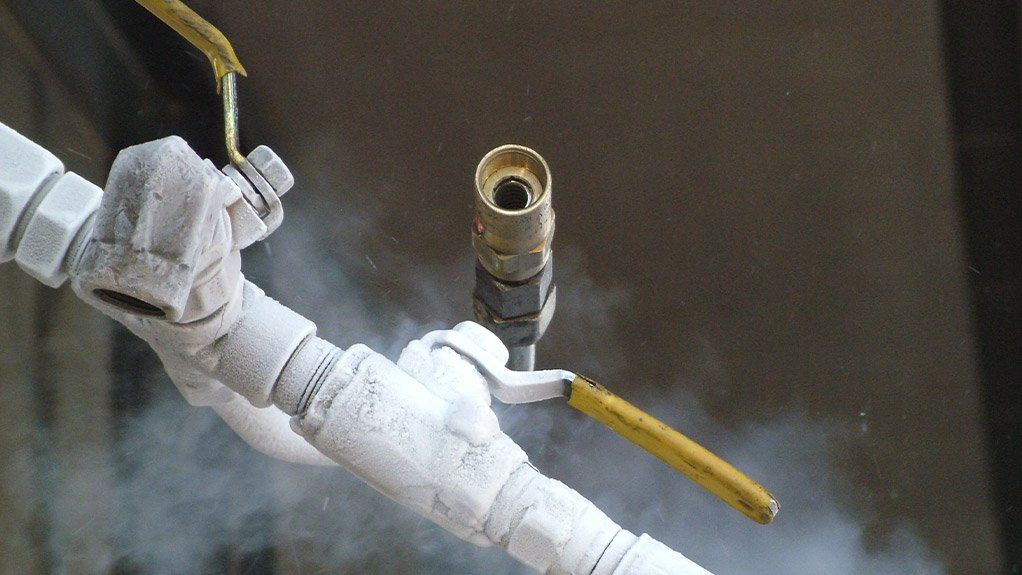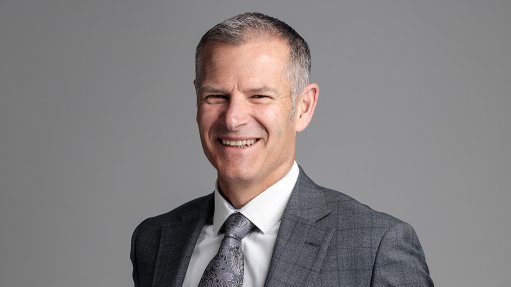Skills shortage plagues natural refrigerant sector



A COOL PROFESSION Training initiatives will help mitigate the shortage of skills for those working with refrigerants
SNEAKY LEAKS Refrigeration systems charged with odourless CO2 need to be monitored with sensors to ensure leaks do not compromise air quality in enclosed spaces
One of the most pertinent issues facing the local heating, ventilation, air-conditioning and refrigeration (HVAC-R) industry is the lack of specialised skills needed for the systematic adoption of natural refrigerants in place of traditional synthetic refrigerants.
Heightened pressure on companies to seek environment-friendly solutions because of global climate change concerns has led to an increasing number of supermarket chains, among other businesses, implementing natural refrigerant systems to edge closer towards a zero global warming potential (GWP).
South African Refrigeration and Air-Conditioning Contractors Association (Saracca) director Barney Richardson explains that this is not simply a matter of charging pre-existing systems with natural refrigerants, as there are substantial technical challenges involved in implementing this migration.
“Many supermarkets, for example, are switching to using carbon dioxide (CO2) as their main refrigerant because it is a naturally occurring gas with low GWP,” he says.
However, he notes that refrigeration systems charged with CO2 operate at extremely high pressures when compared with traditional hydrofluorocarbon (HFC) systems, requiring competent engineering design and technical skills.
“The maximum operating pressure of a trans-critical CO2 system could be as high as 120 bar compared with a 31 bar for an HFC system, and a condensing temperature of about 30 ºC needs to be maintained.”
Moreover, should a leak occur inside a closed space, oxygen levels could be lowered, posing a danger to those occupying the space.
He says that because CO2 is odourless, it is important to ensure that CO2-charged systems have reliable sensors installed to monitor air quality and detect any potential leaks early.
Hydrocarbons are also becoming increasingly popular as refrigerants, particularly on smaller systems such as domestic refrigerators.
Hydrocarbon-based refrigerator systems require a relatively small charge, but its flammable nature poses a risk to artisans and practitioners working on them.
Ammonia is another natural refrigerant, which has been commonly used for a long time – particularly in large cold stores, such as those that store perishable foods, where the charge is high and the system is sizeable.
If leaked it can also be toxic when inhaled; therefore, it is important to ensure adequate monitoring and that operators and service practitioners are trained to respond to accidental leaks.
“Another challenge with ammonia-charged refrigeration systems is the modern trend towards smaller systems with low charges, which poses significant engineering challenges,” Richardson says.
Skills
The unique challenges and dangers involved in working with such diverse refrigeration systems requires an adequately-skilled HVAC-R technical workforce to operate and maintain the systems safely and sustainably – which is lacking in South Africa.
“There is a great shortage of skills for those working with all refrigerants, including natural refrigerants,” Richardson notes.
South African Institute of Refrigeration and Air-Conditioning (Sairac) president Marius La Grange notes that the HVAC-R industry is struggling to produce high-quality artisans in this sector.
“At the root of this problem is the basic education system, which leaves a lot to be desired – particularly in subjects like mathematics,” he says.
Sairac provides a number of training opportunities for the industry, some of which address the most basic skills such as multiplication.
“At technical colleges, we find that the learners cannot do basic mathematics. It is a significant challenge to ensure that aspiring artisans are trained in those basic capabilities,” he tells Engineering News.
Sairac provides a number of training opportunities for the industry, with specific focus on the application of natural refrigerants such as CO2, ammonia and hydrocarbons – including R290 and R600a.
Richardson adds that Saracca also places an emphasis on training, ensuring that safety protocols are ingrained and that technicians are properly certified and registered in accordance with the Occupational Health and Safety Act and Pressure Equipment Regulations.
He says Saracca and Sairac work closely together on training initiatives.
“We are focusing on providing training for two trades that have been created by the Department of Higher Education and the South African Qualifications Authority,” he notes.
One such trade is merely an update of the prior refrigeration trade, with additional requirements that must be met so that practitioners and technicians can be qualified according to the updated trade curriculum.
The other trade is new – that of the air-conditioning mechanical practitioner, which Richardson says will come into force this year.
“The curriculum for this has been developed. However, the training literature requires some revision and updating, which is a process that will be carried out throughout the year.”
He adds that there are many semiskilled workers in the HVAC-R industry, but they are often not properly certified or their certification is outdated, and they do not have the skills necessary to keep up with the latest trends in the industry.
Consequently, the Department of Environment, Forestry and Fisheries is working with the Department of Labour, and the United Nations Industrial Development Organisation to provide skills training in natural and synthetic refrigerant handling to those in the informal sector this year.
“The aim of this initiative is to address informal workers who do not have trade qualifications or even semi-skilled training,” he concludes.
Comments
Press Office
Announcements
What's On
Subscribe to improve your user experience...
Option 1 (equivalent of R125 a month):
Receive a weekly copy of Creamer Media's Engineering News & Mining Weekly magazine
(print copy for those in South Africa and e-magazine for those outside of South Africa)
Receive daily email newsletters
Access to full search results
Access archive of magazine back copies
Access to Projects in Progress
Access to ONE Research Report of your choice in PDF format
Option 2 (equivalent of R375 a month):
All benefits from Option 1
PLUS
Access to Creamer Media's Research Channel Africa for ALL Research Reports, in PDF format, on various industrial and mining sectors
including Electricity; Water; Energy Transition; Hydrogen; Roads, Rail and Ports; Coal; Gold; Platinum; Battery Metals; etc.
Already a subscriber?
Forgotten your password?
Receive weekly copy of Creamer Media's Engineering News & Mining Weekly magazine (print copy for those in South Africa and e-magazine for those outside of South Africa)
➕
Recieve daily email newsletters
➕
Access to full search results
➕
Access archive of magazine back copies
➕
Access to Projects in Progress
➕
Access to ONE Research Report of your choice in PDF format
RESEARCH CHANNEL AFRICA
R4500 (equivalent of R375 a month)
SUBSCRIBEAll benefits from Option 1
➕
Access to Creamer Media's Research Channel Africa for ALL Research Reports on various industrial and mining sectors, in PDF format, including on:
Electricity
➕
Water
➕
Energy Transition
➕
Hydrogen
➕
Roads, Rail and Ports
➕
Coal
➕
Gold
➕
Platinum
➕
Battery Metals
➕
etc.
Receive all benefits from Option 1 or Option 2 delivered to numerous people at your company
➕
Multiple User names and Passwords for simultaneous log-ins
➕
Intranet integration access to all in your organisation




















